Types of Holds
Chips
Small holds like crimps but generally used as foot holds.

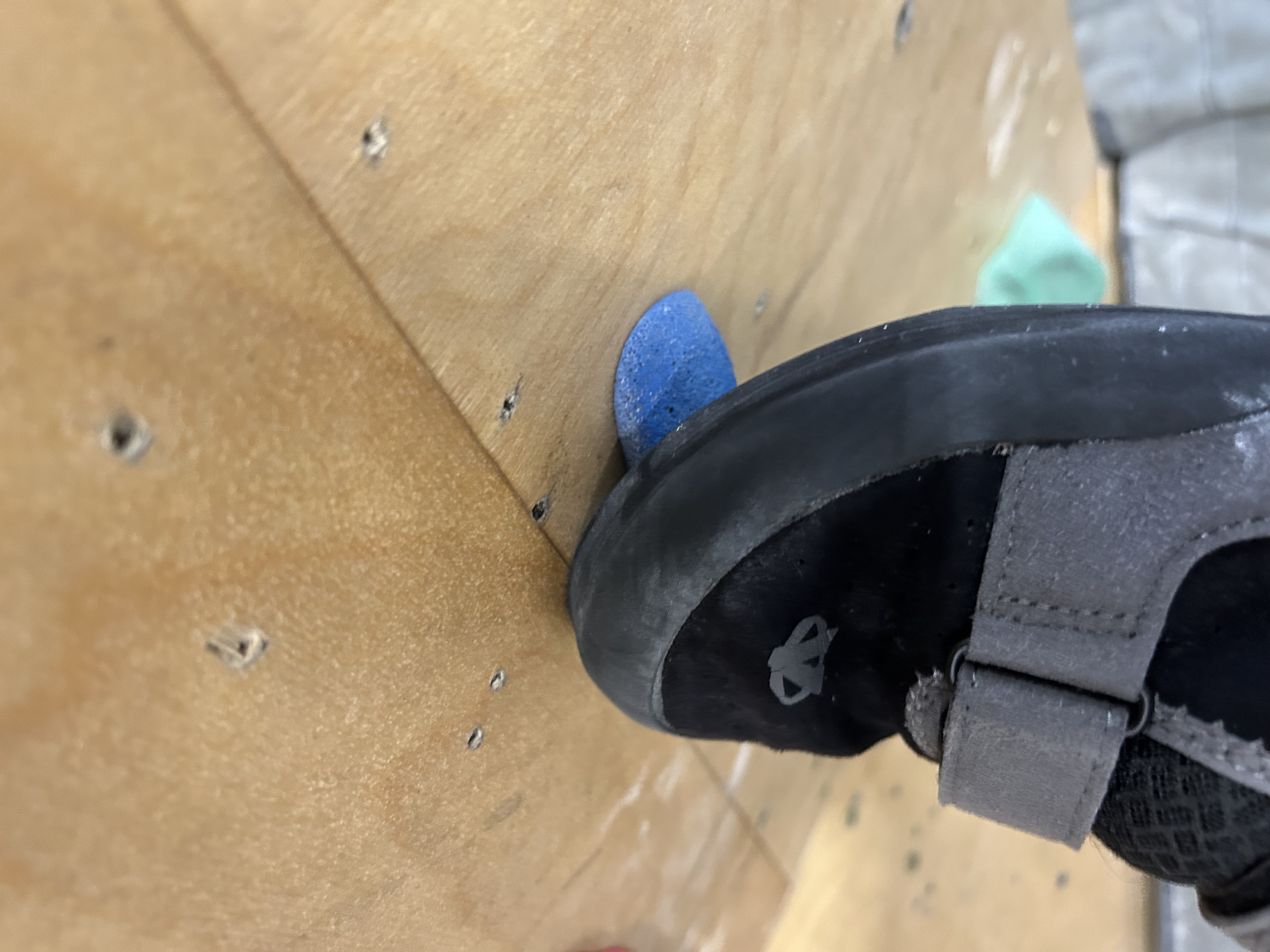
Crimp
A small and thin hold. This requires climbers to use the tips of their fingers.
There are different ways to hold onto a crimp. These are open, half, full, and closed. Think of this as a hierarchy starting with the open crimp. As a climber moves up the list, the amount of pressure they can apply to the hold increases. However, this means that more pressure is being applied to the joints in their fingers which can be damaging. This is why it is generally suggested to use the half crimp since climbers can still apply a good amount of pressure while minimizing how much the fingers are strained.
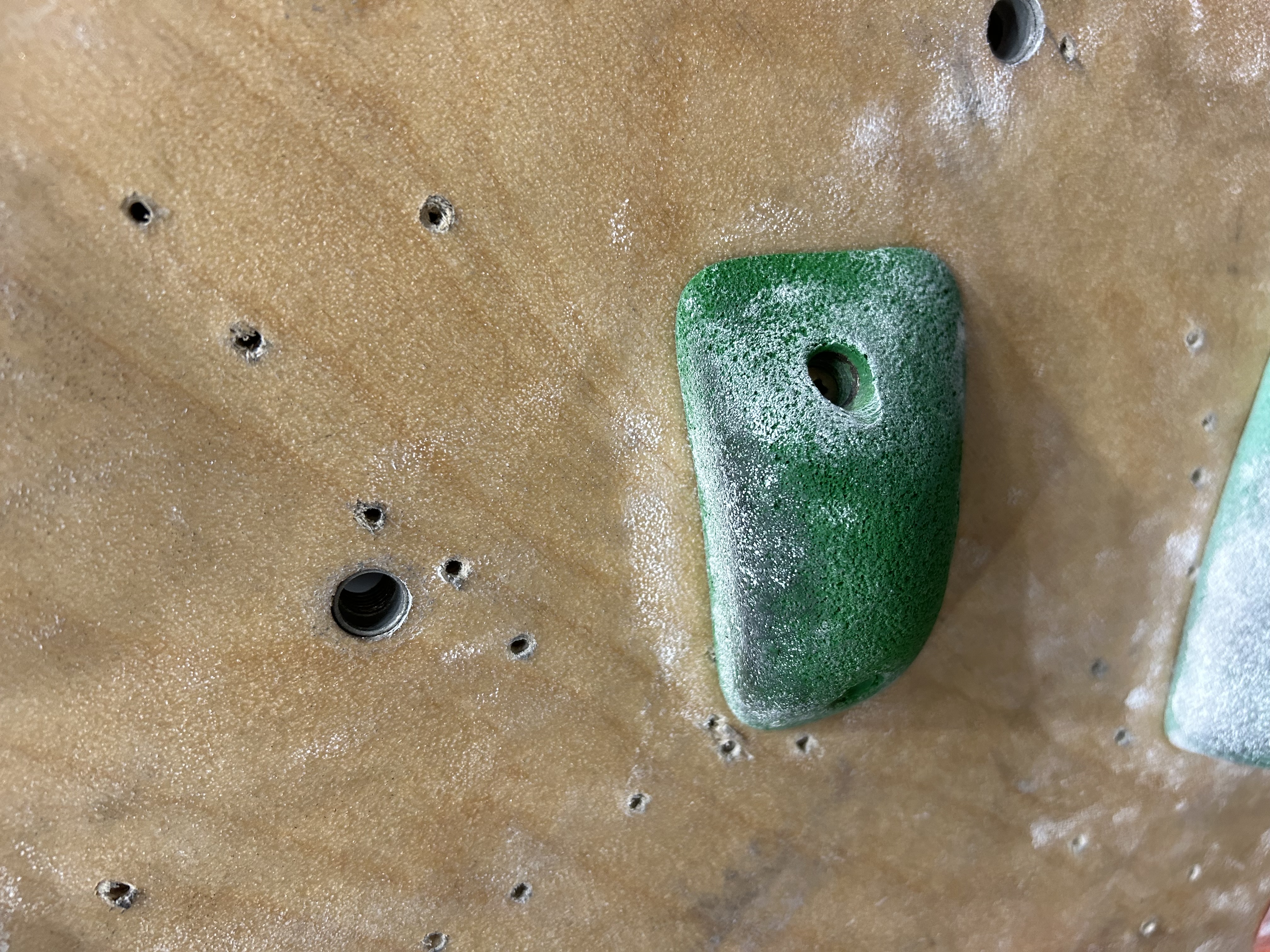
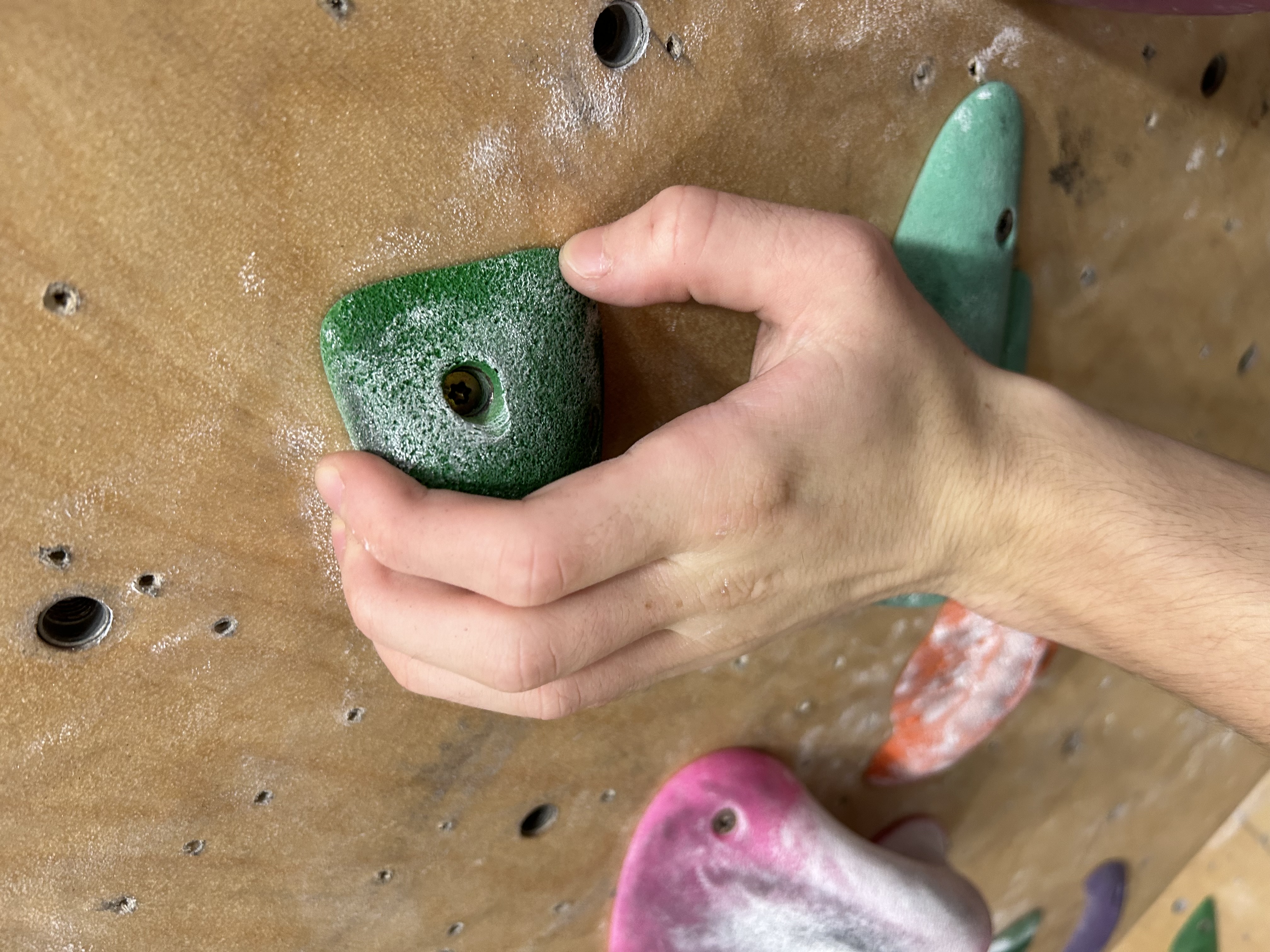
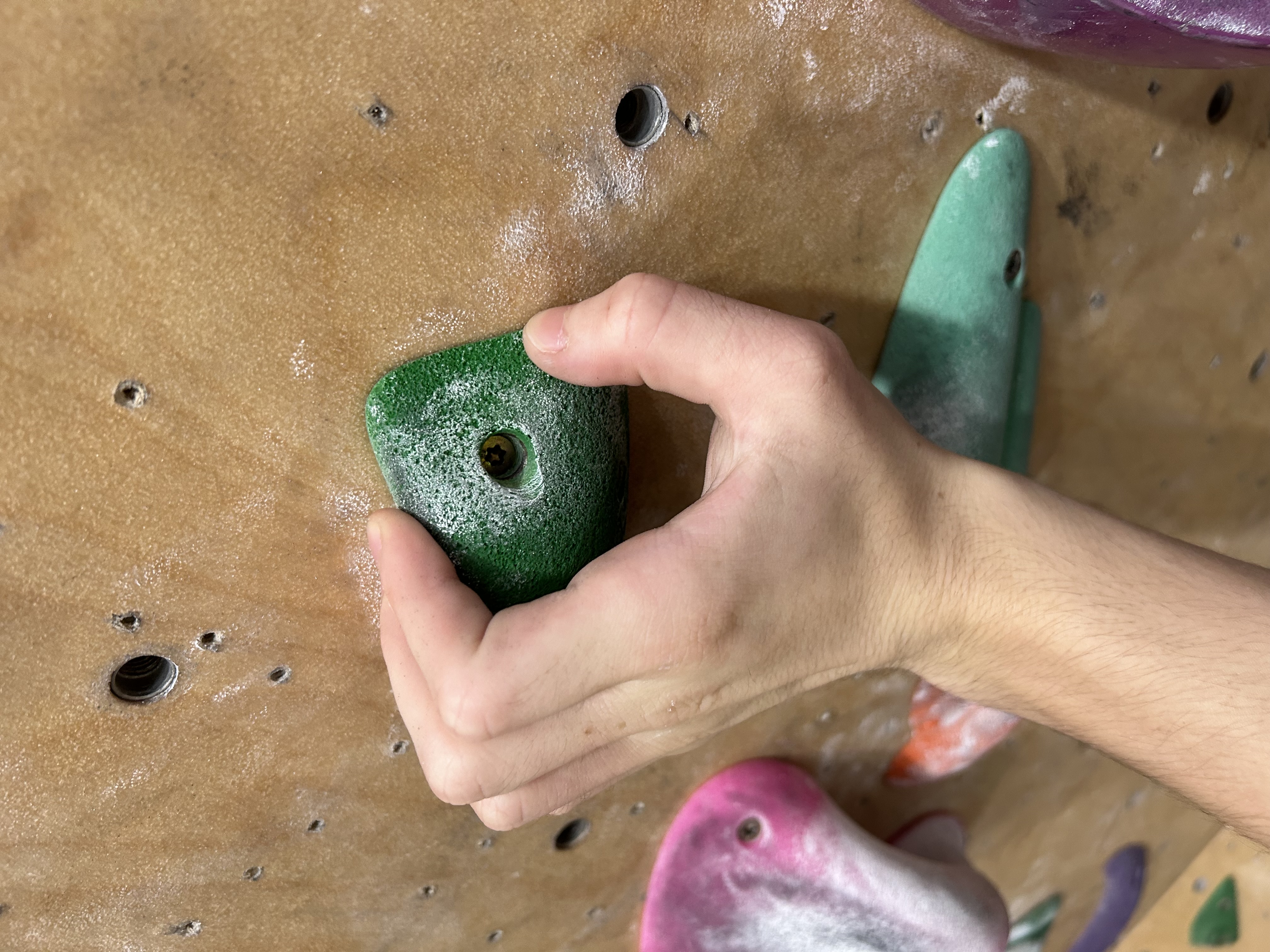
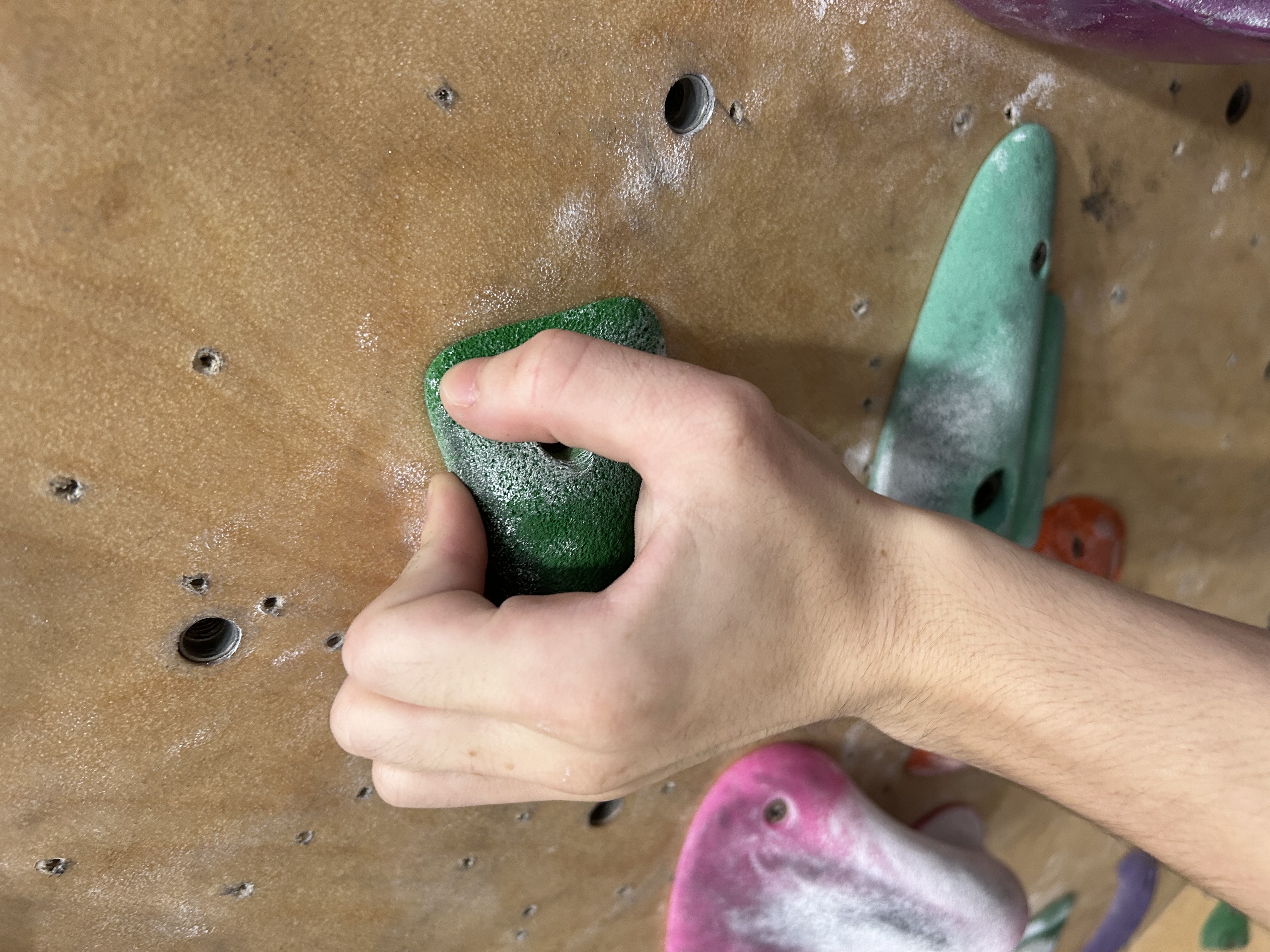
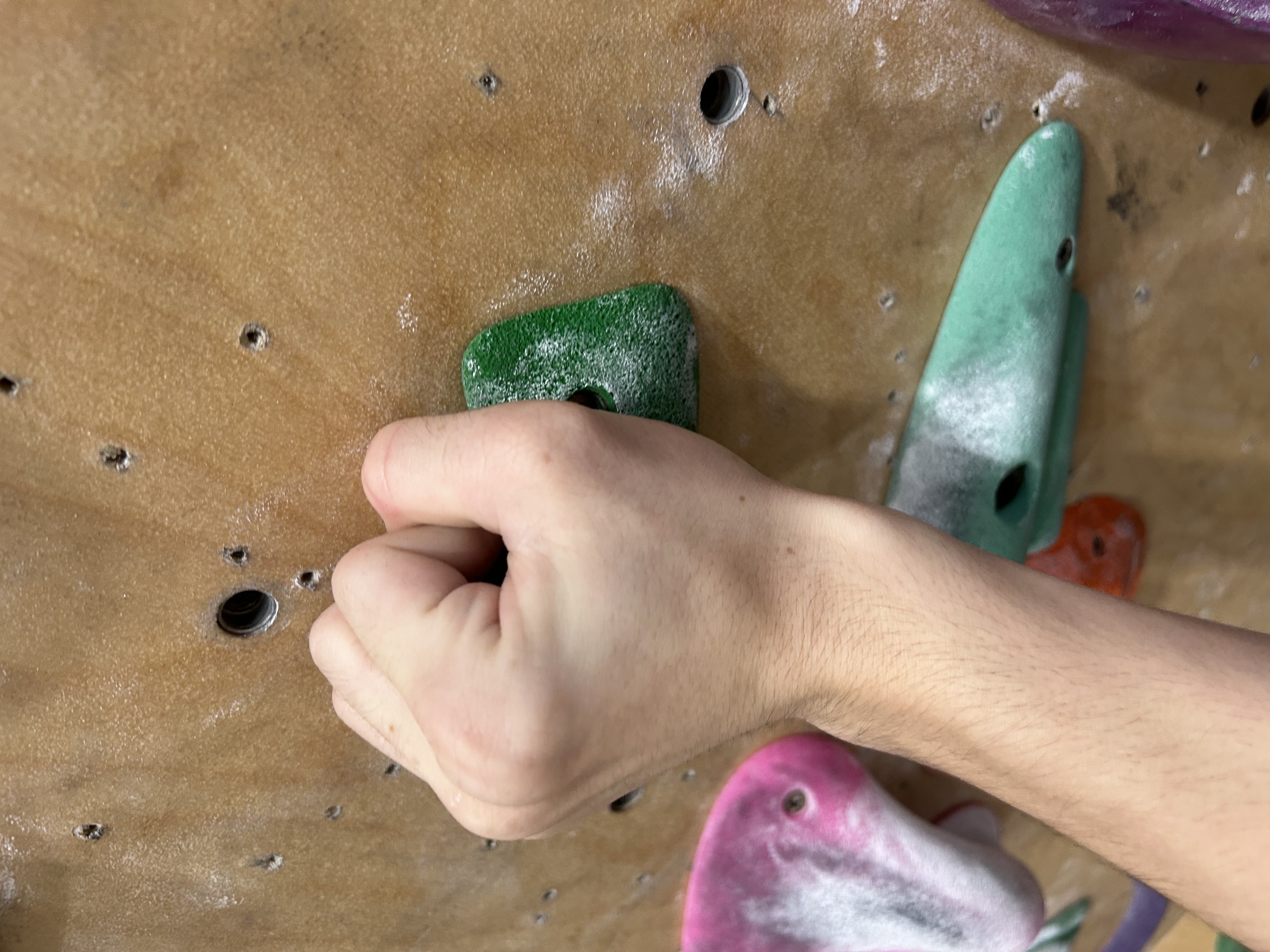
Dual Texture
When a climbing hold has two different surfaces. One that is very slippery and one that is like sandpaper.
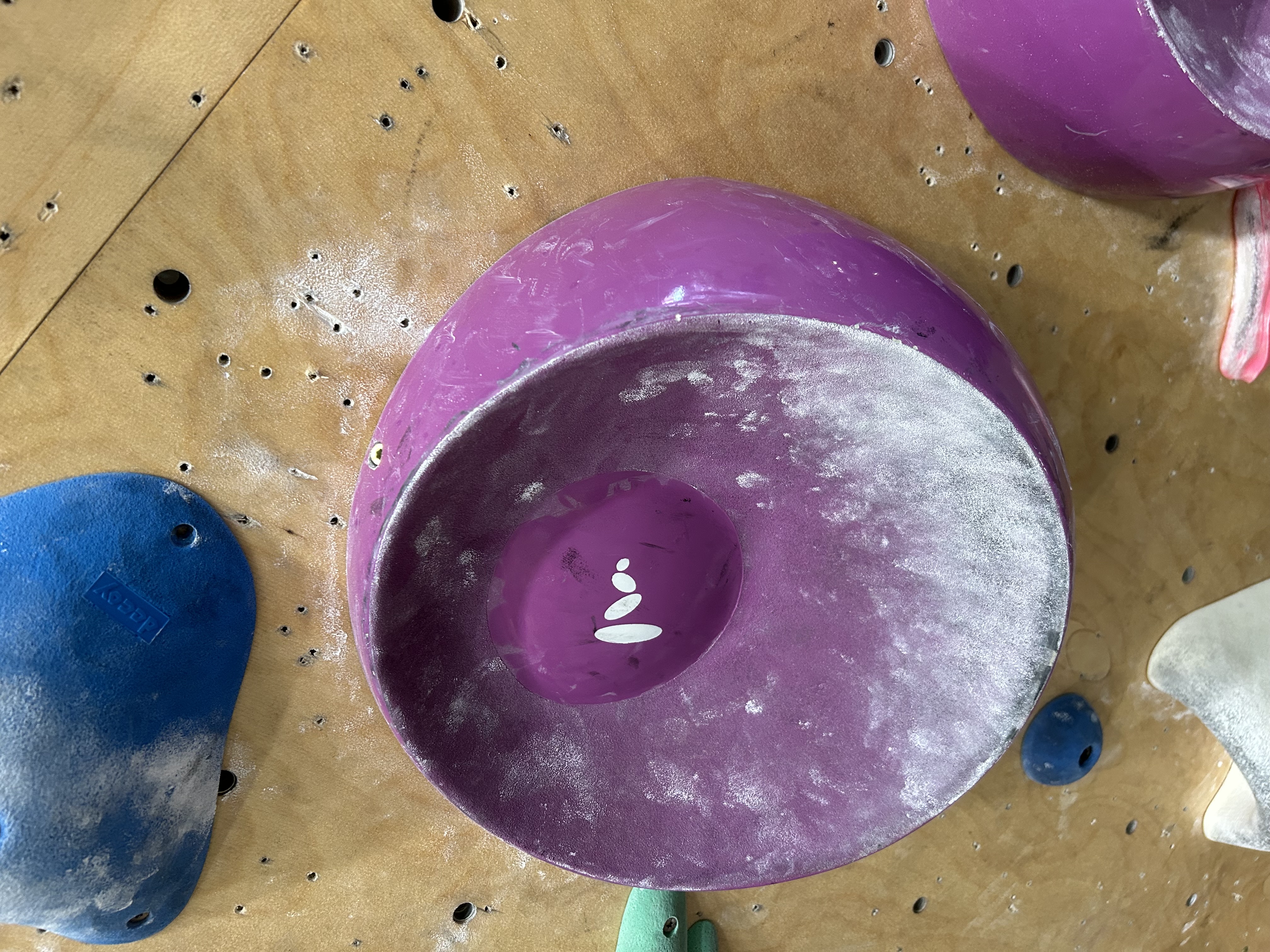
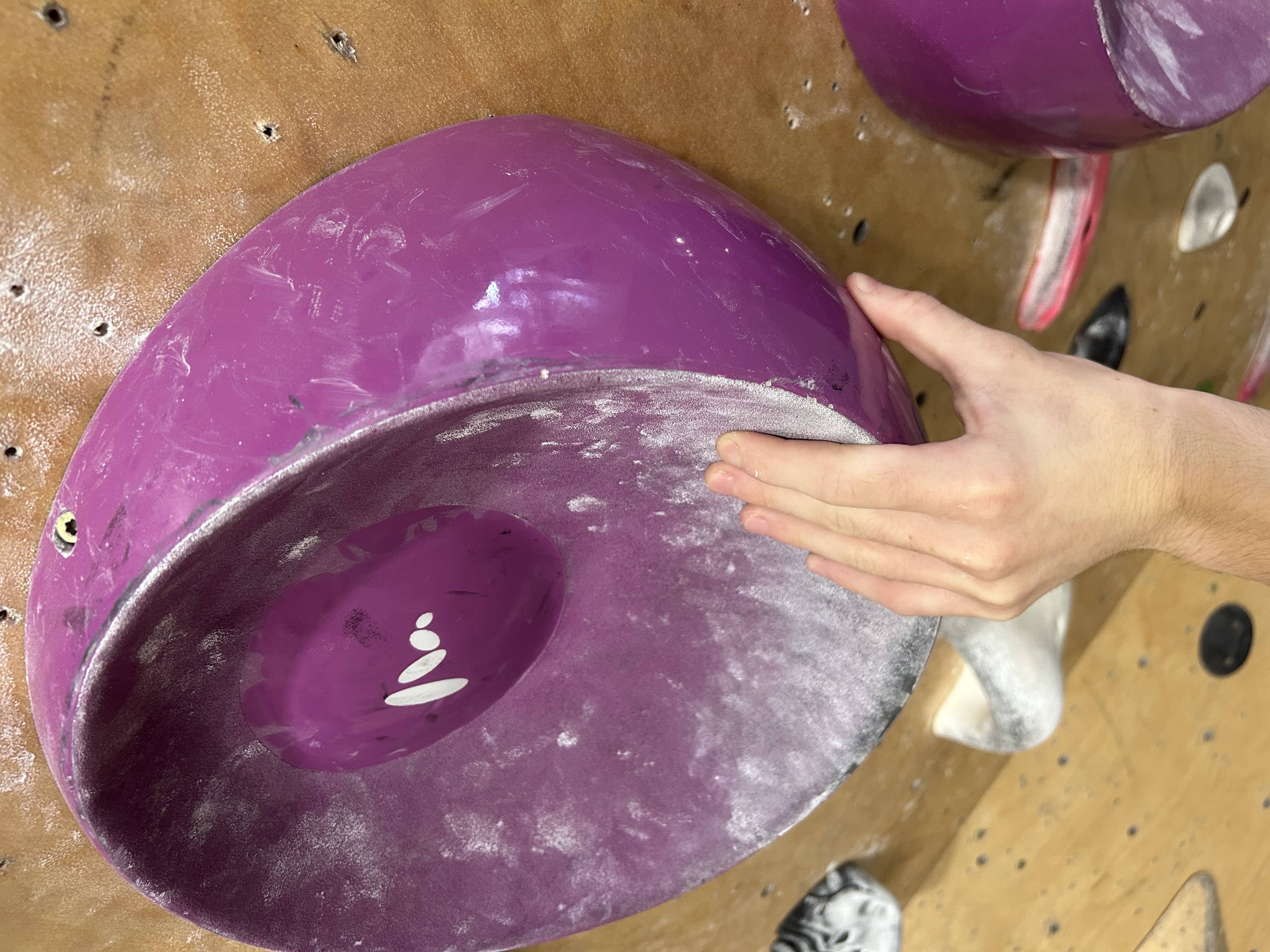
Edge
A flat surface larger than a crimp but smaller than a jug.

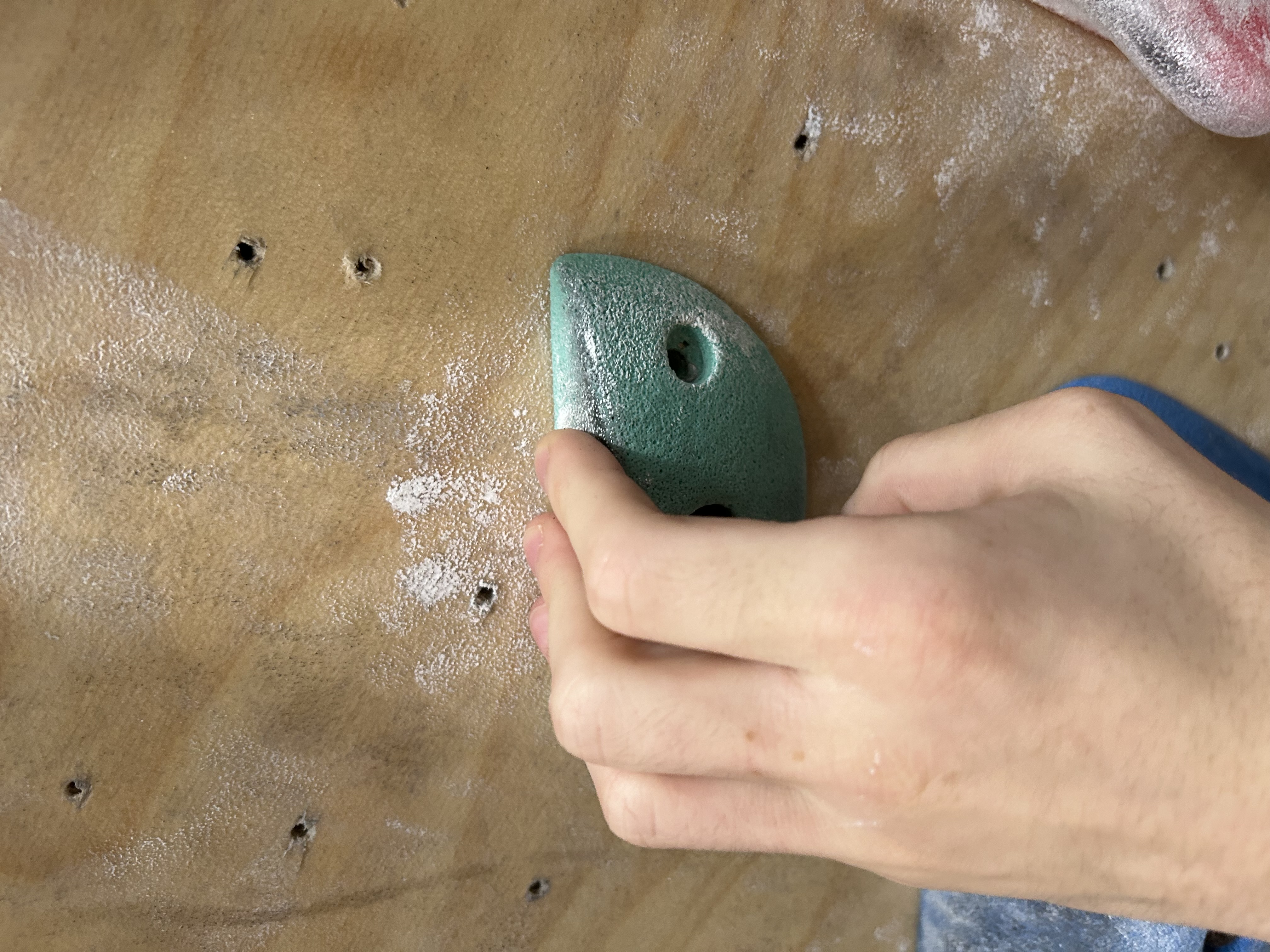
Jug
Large holds with a deep and easy area to grab.
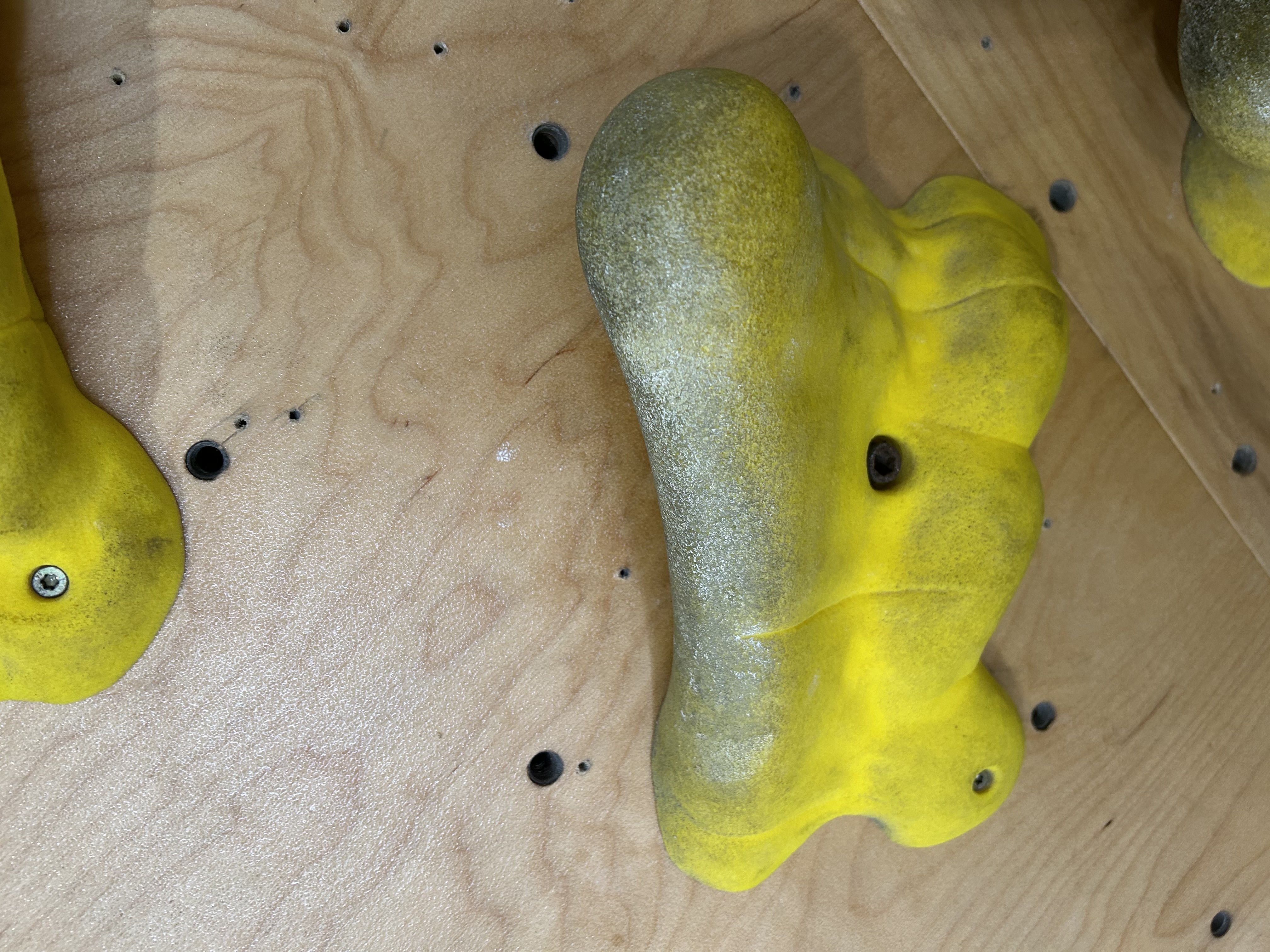
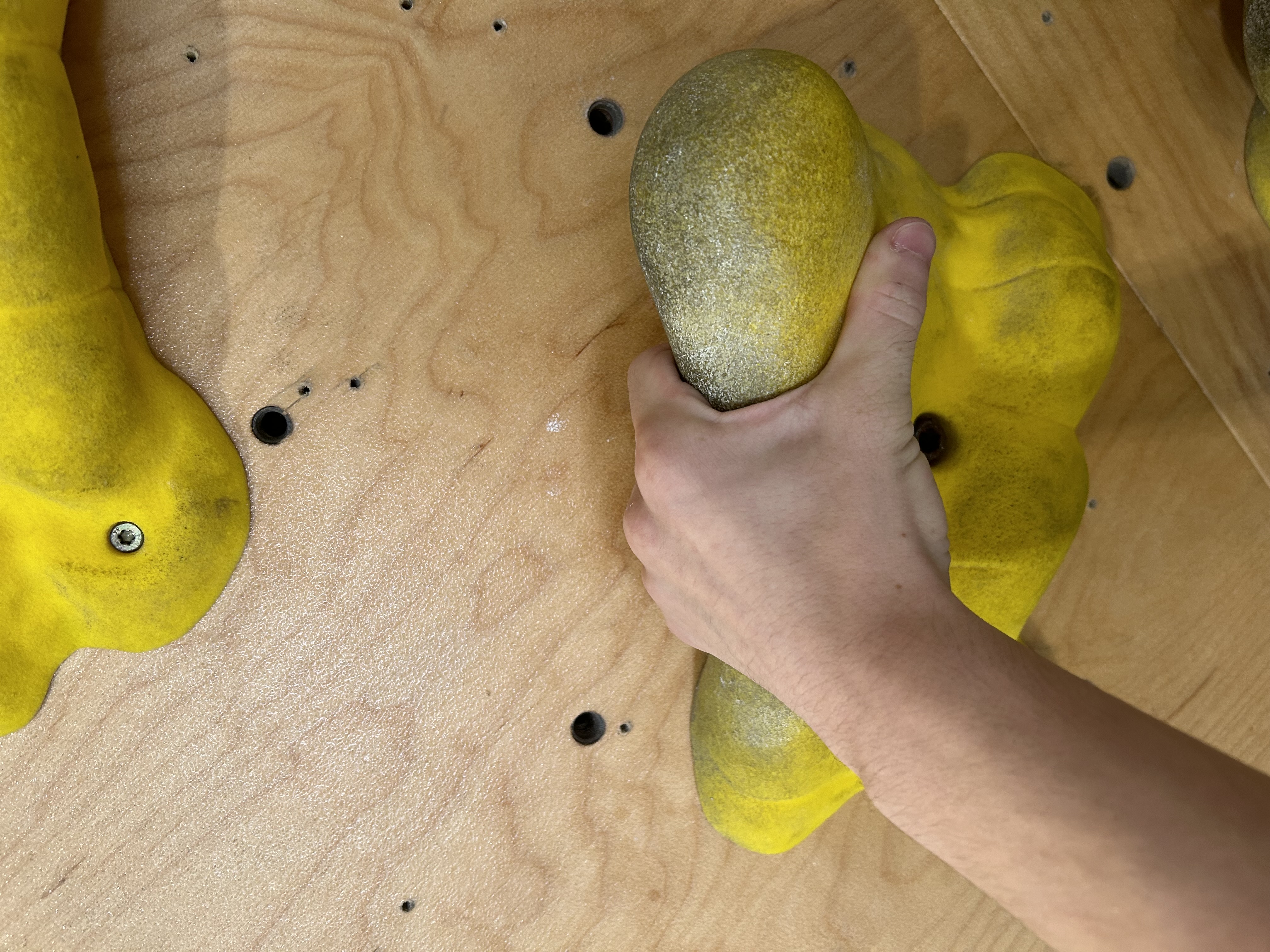
Pinch
Wide holds that require climbers to grab it as if pinching something in between their thumbs and other fingers.

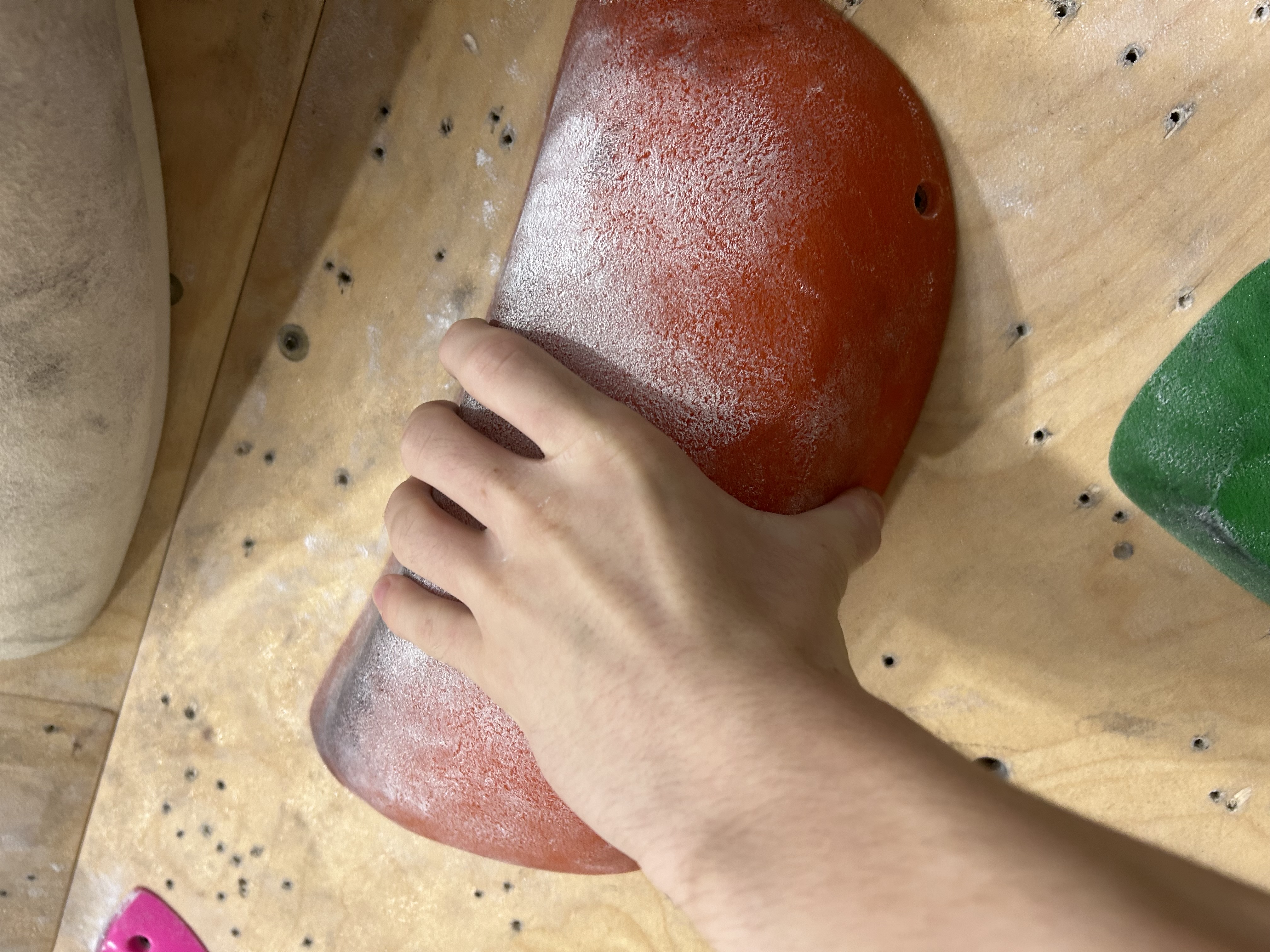
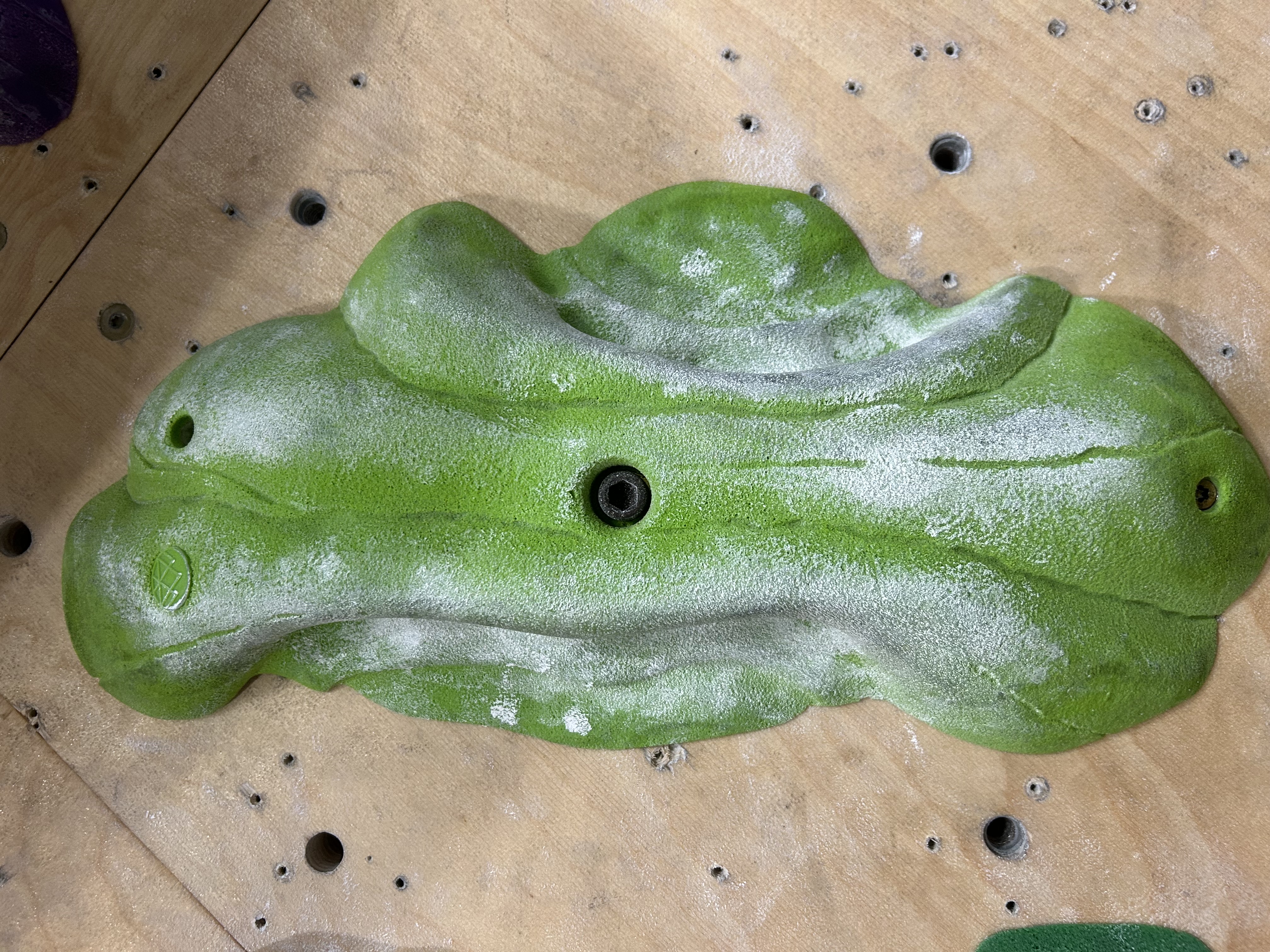
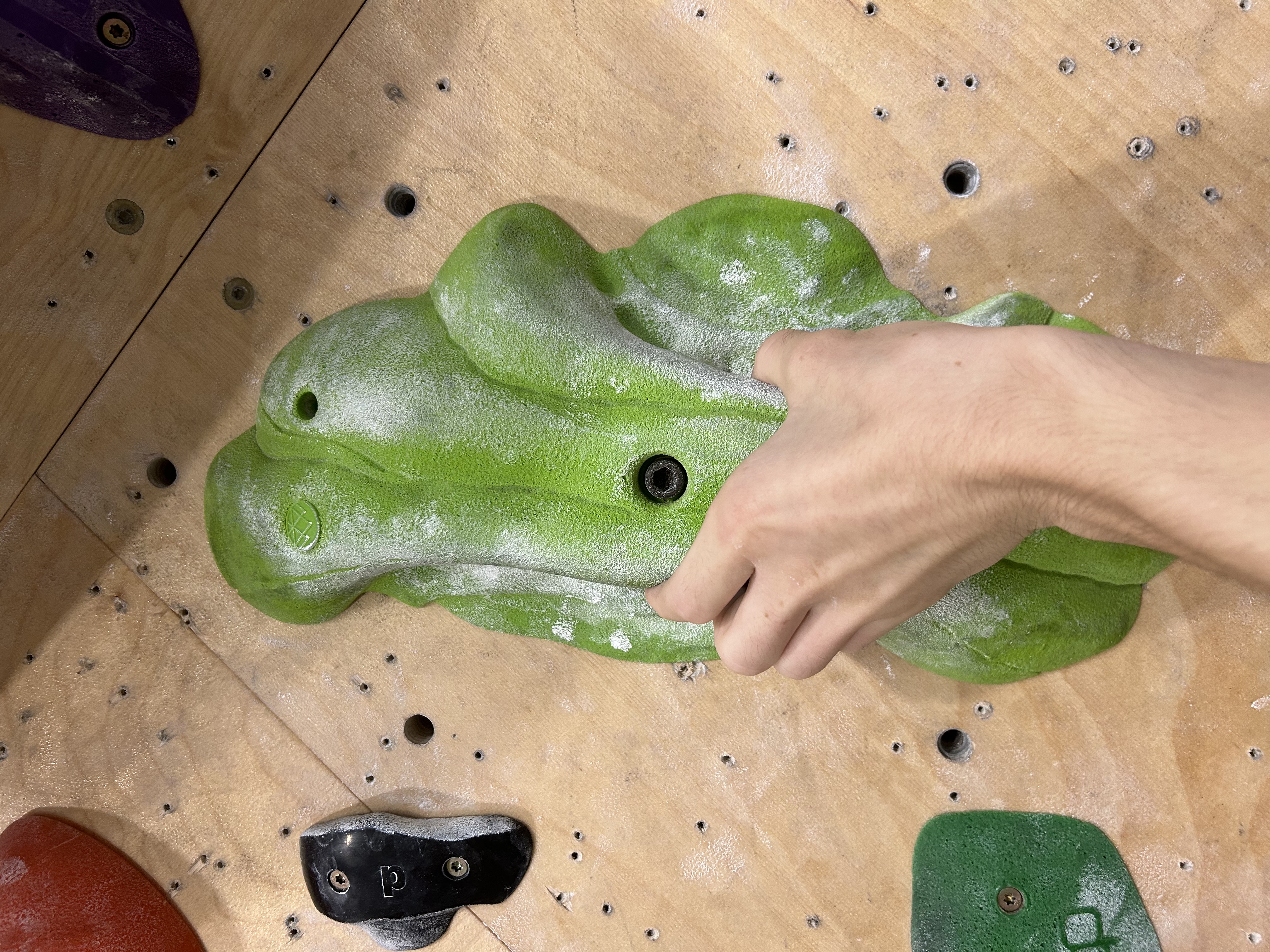
A hold with a circular entrance that can only be grabbed with one to three fingers.
Use as many fingers as possible. If only two fingers can be used, then use the middle finger and the one closest in length to it (either the pointer or ring finger).
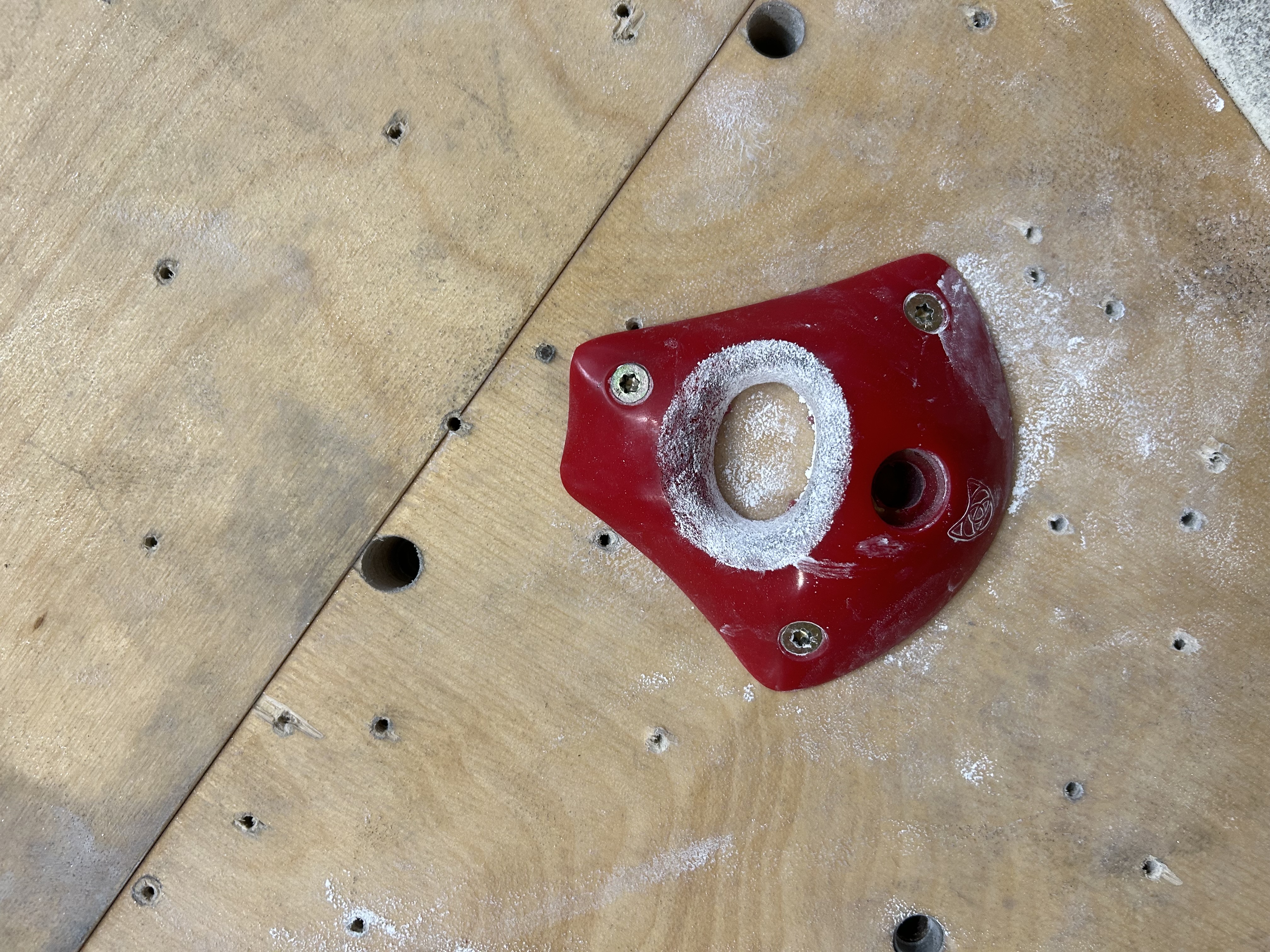
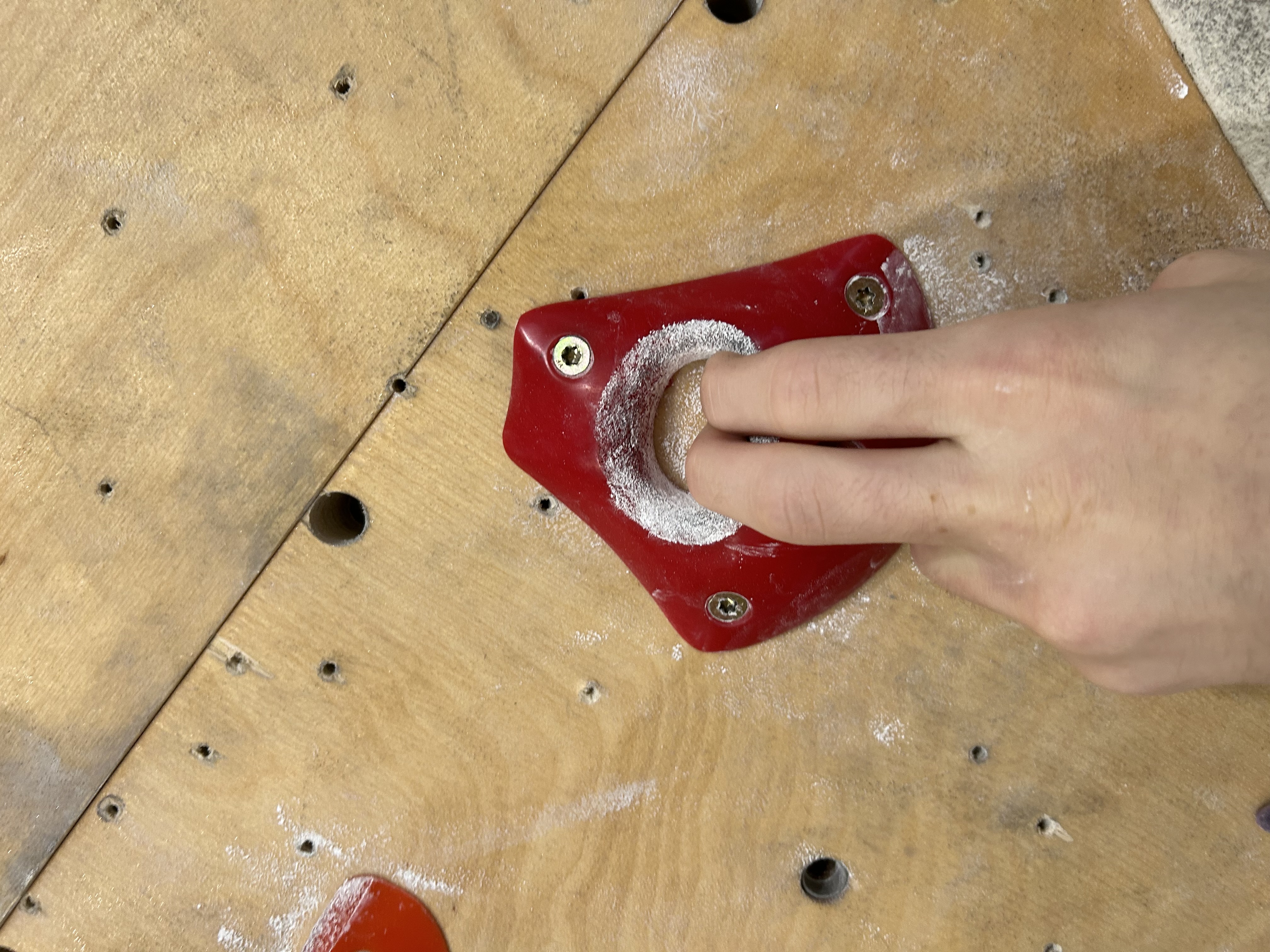
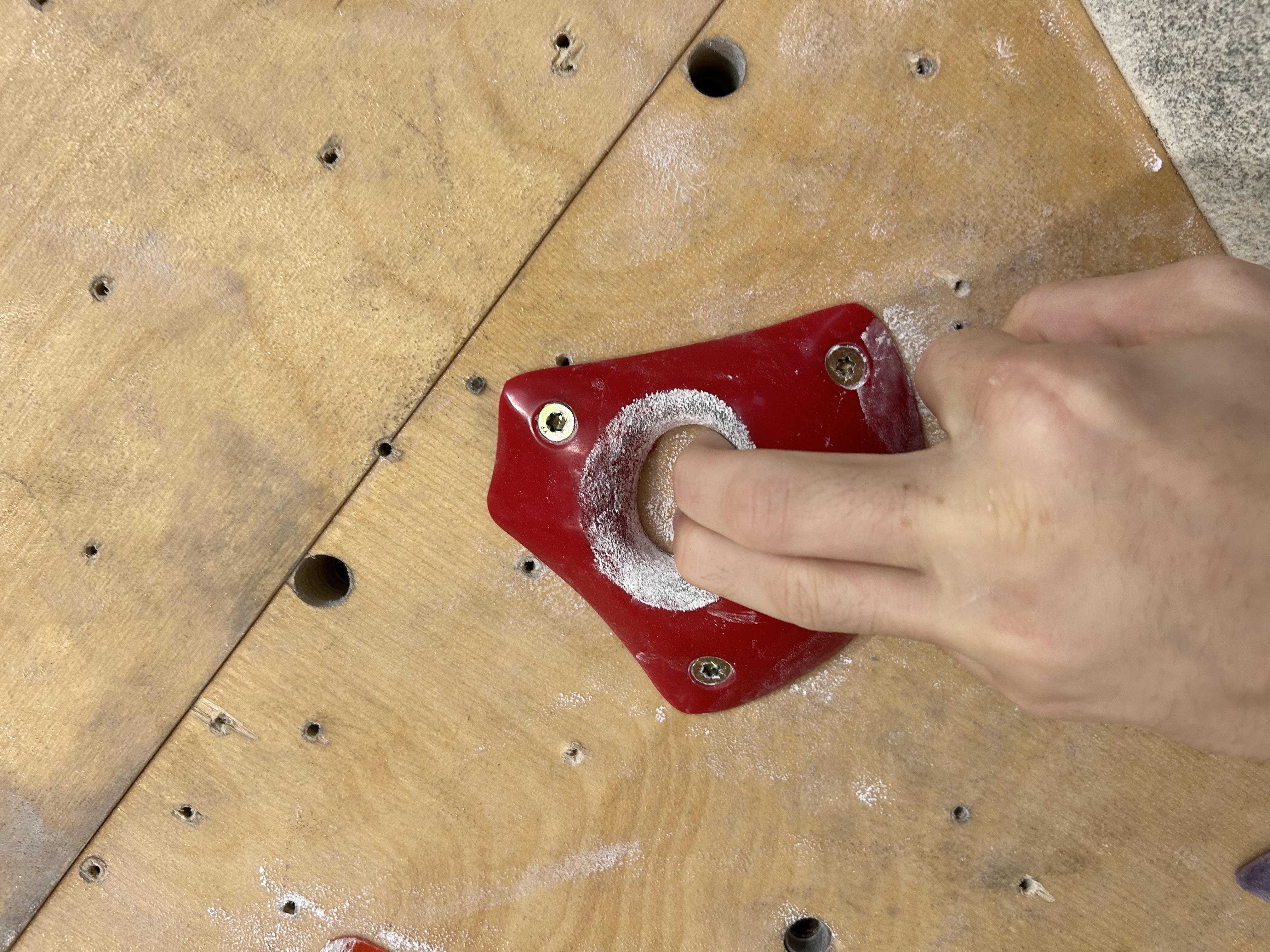
Sloper
A rounded hold with no edge to grip onto.
Try to keep the body's center of weight under the hold with straight arms. This helps apply as much friction as possible while saving energy.
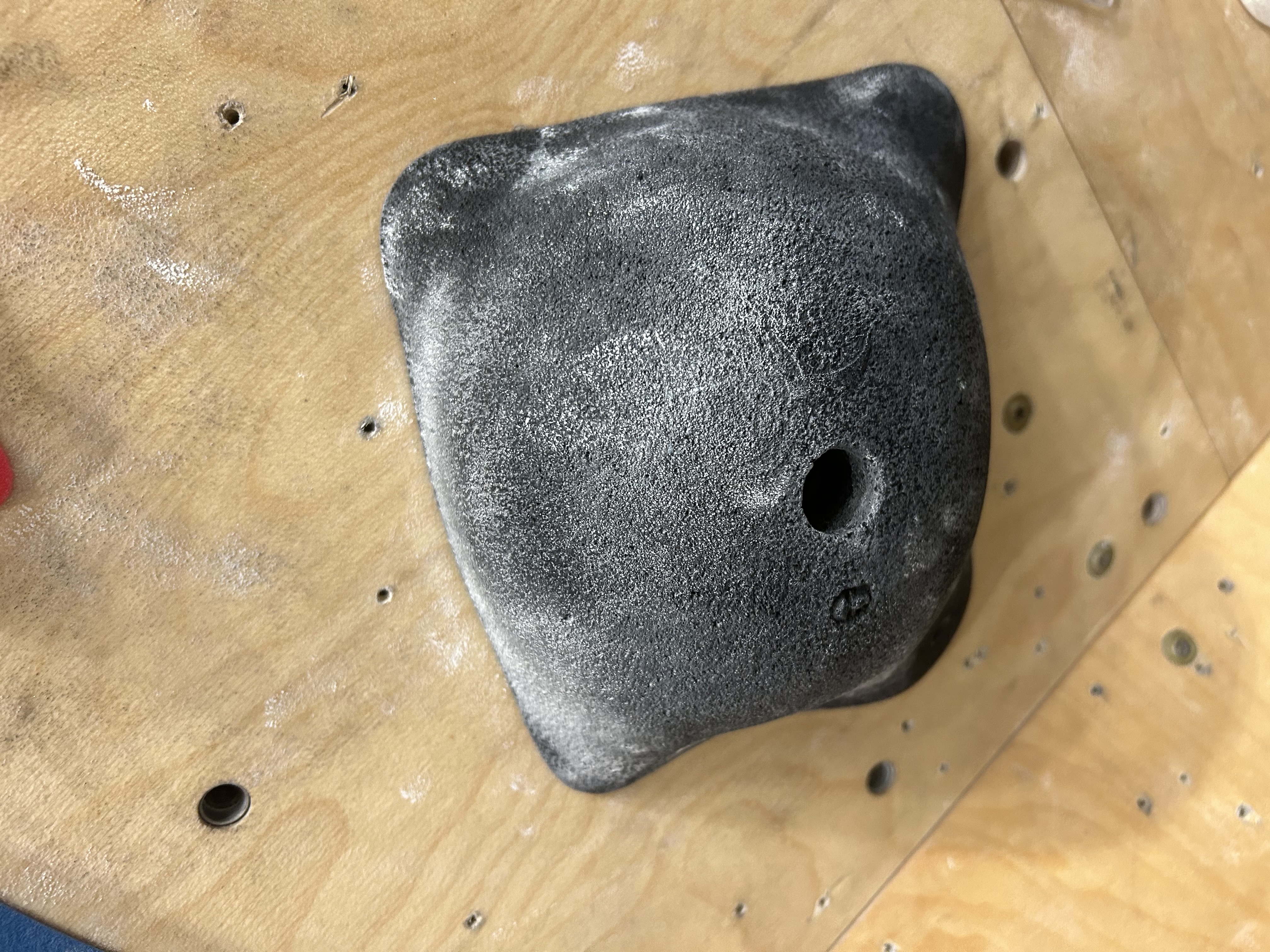
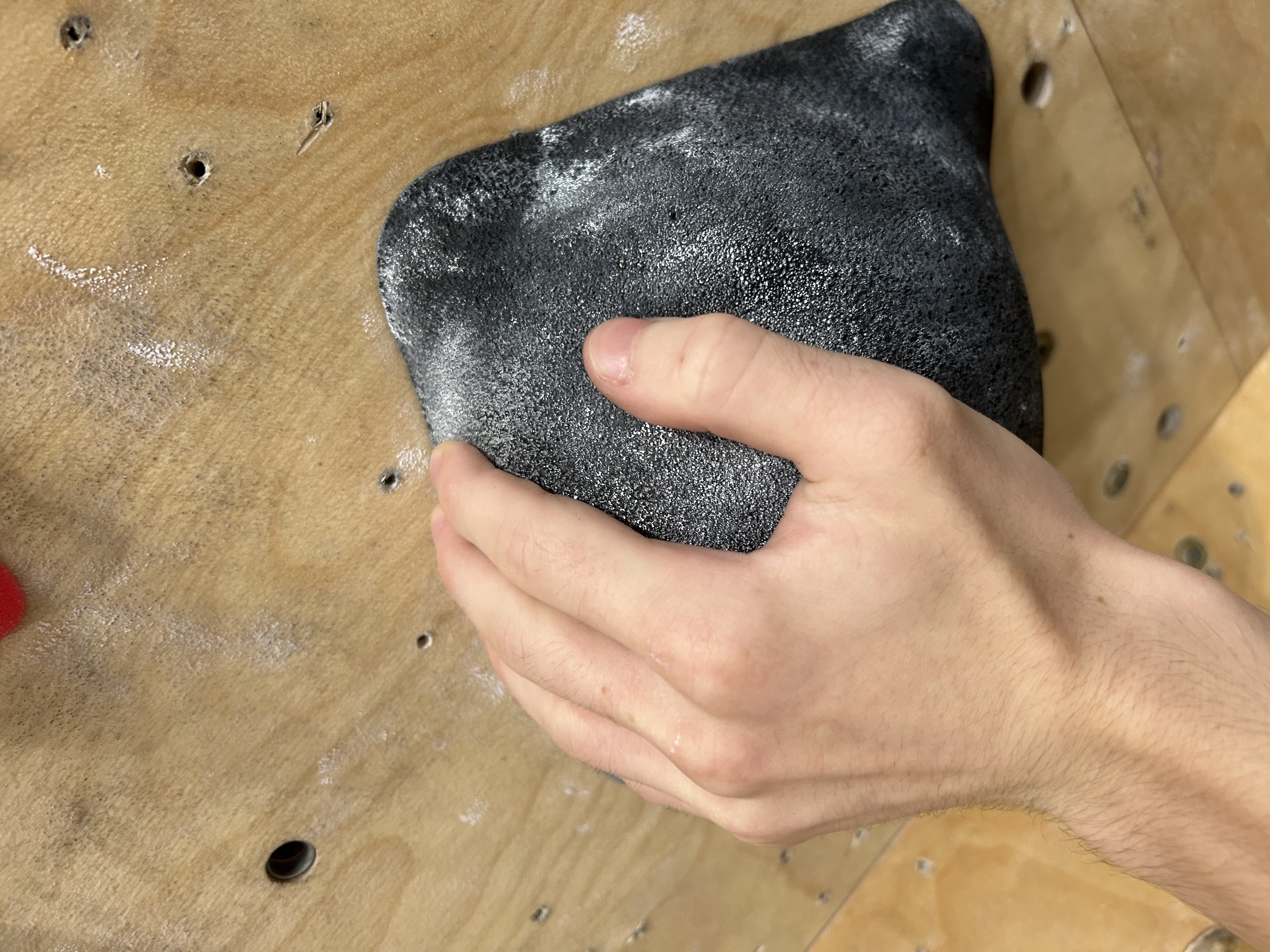
Undercling
An upside-down hold. Generally held with the climber's palm facing upwards.
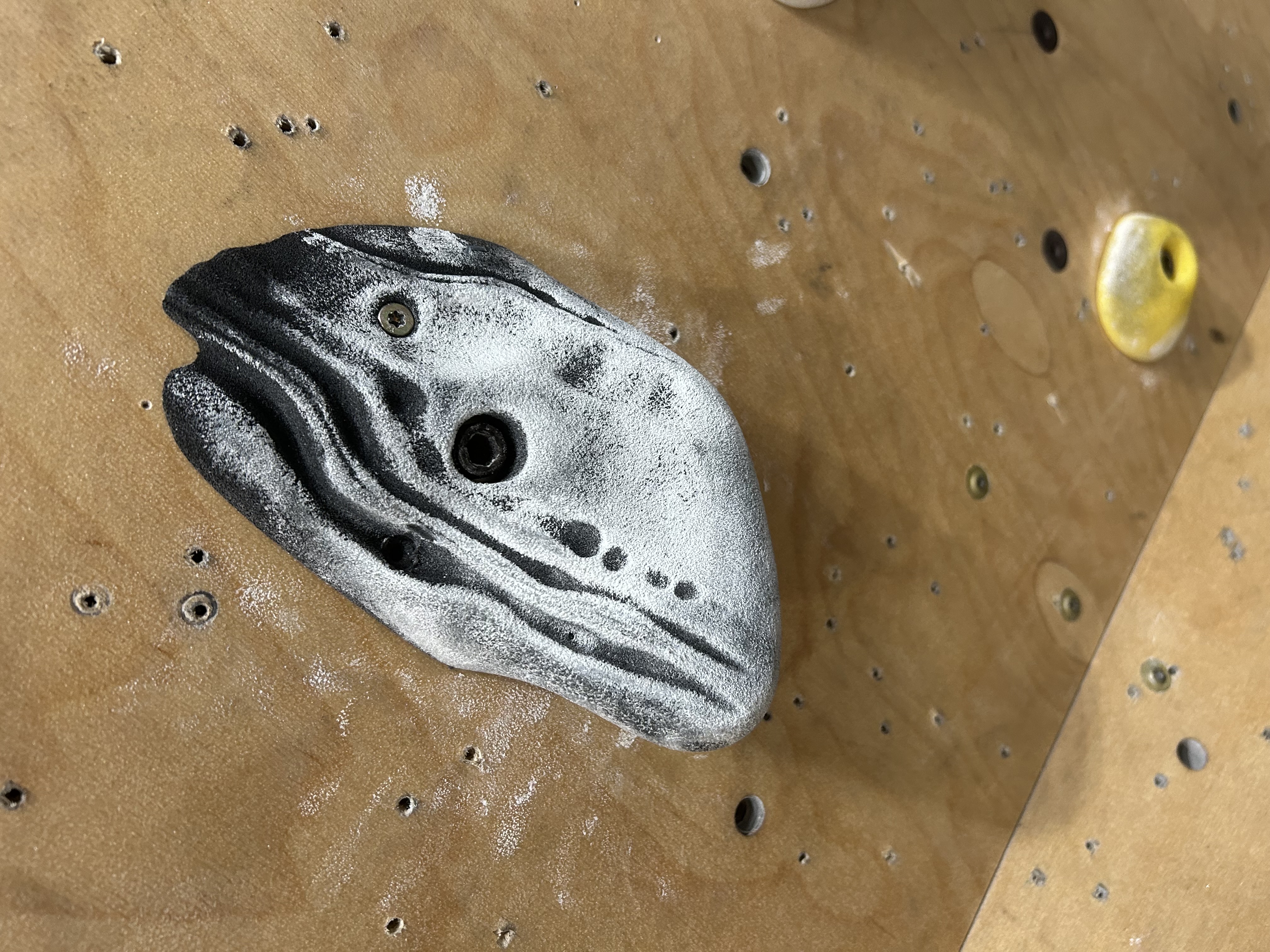
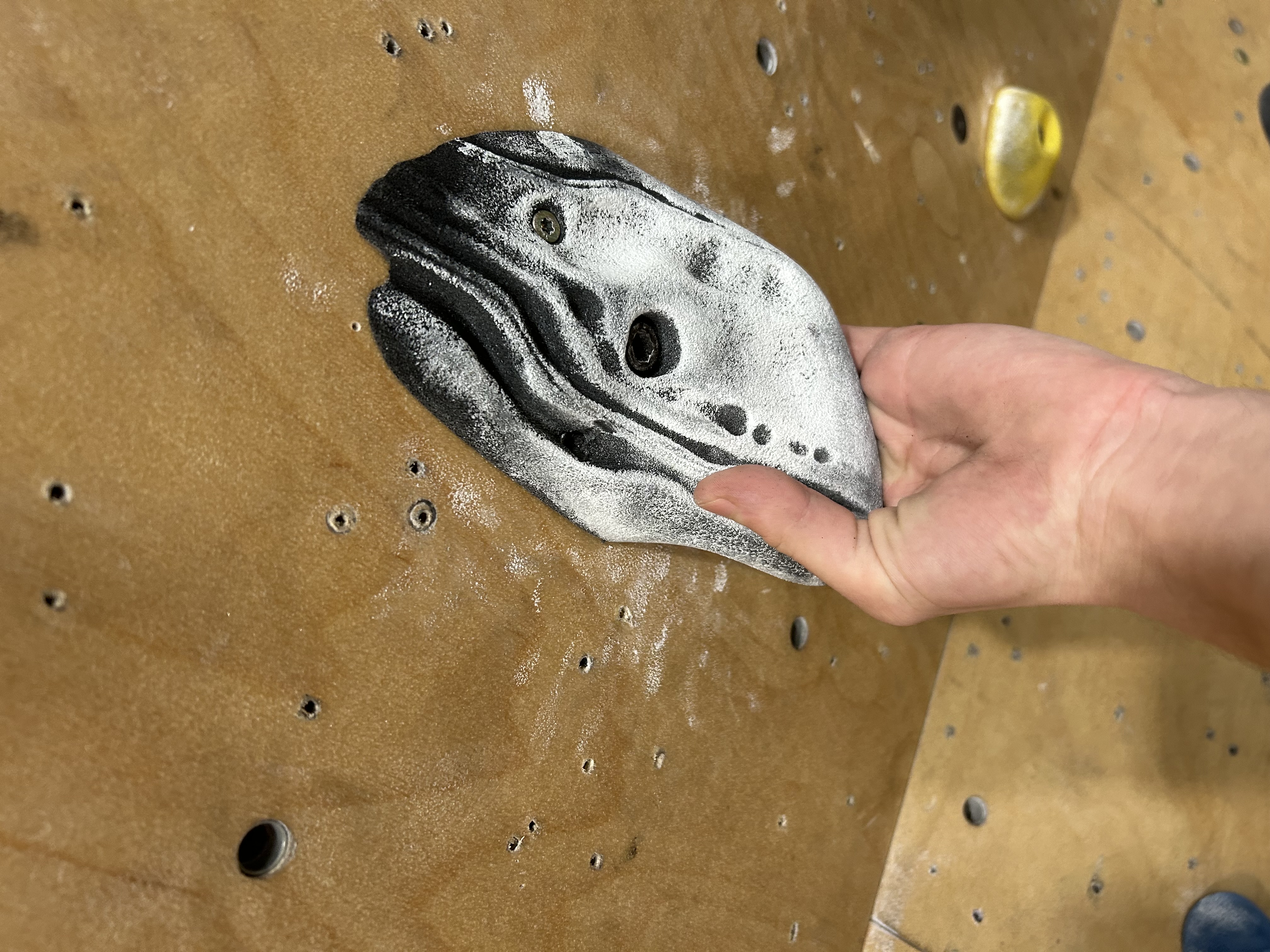
Volume
An extension added to the wall to add variance to the wall.
Gyms have different rules regarding when a climber can use a volume. Some gyms only allow climbers to use volumes when it has the same color hold attached to it as the path the climber is trying to complete. While other gyms allow full use of volumes no matter what holds are or are not attached to it. Make sure to ask the gym’s staff what the rules are!
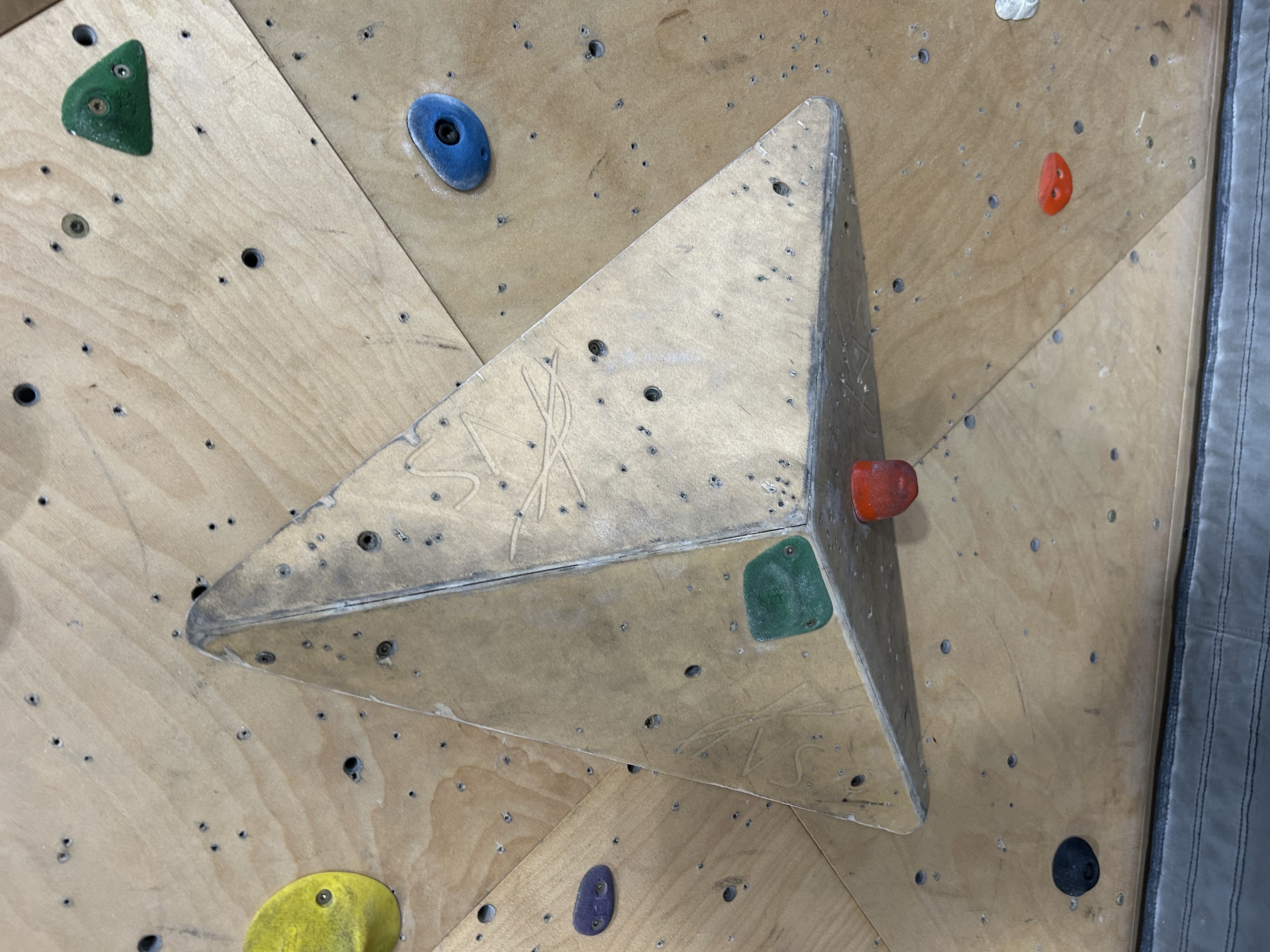
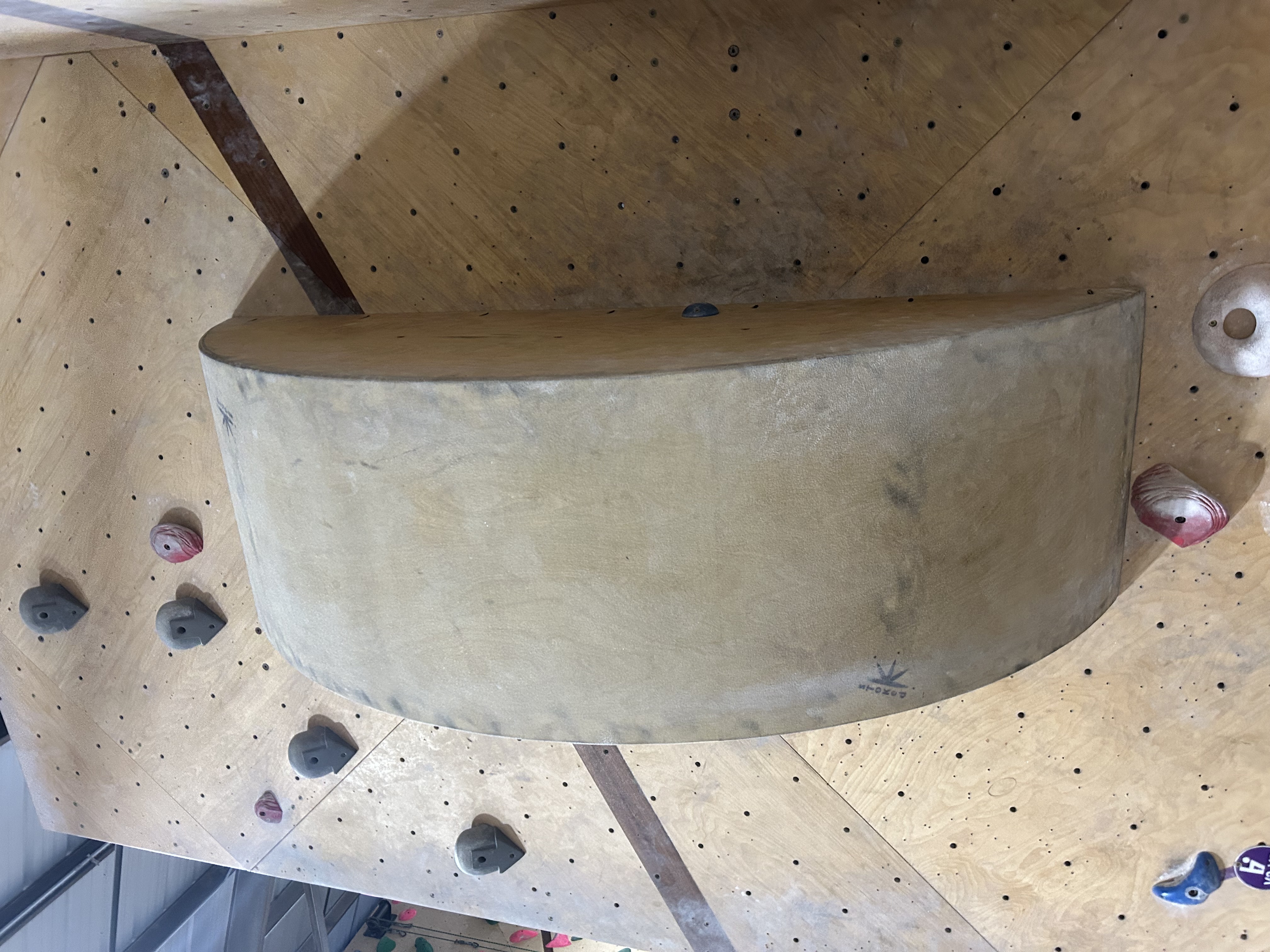

Disclaimer: This website only provides tips for indoor rock climbing. Additionally, individuals must be responsible for their own health and safety.